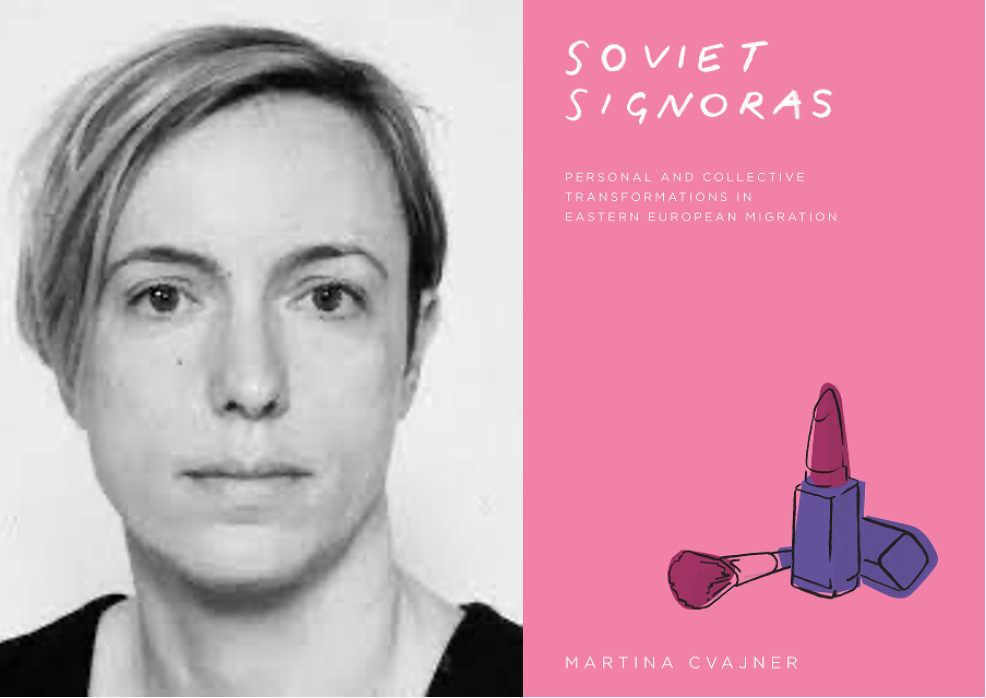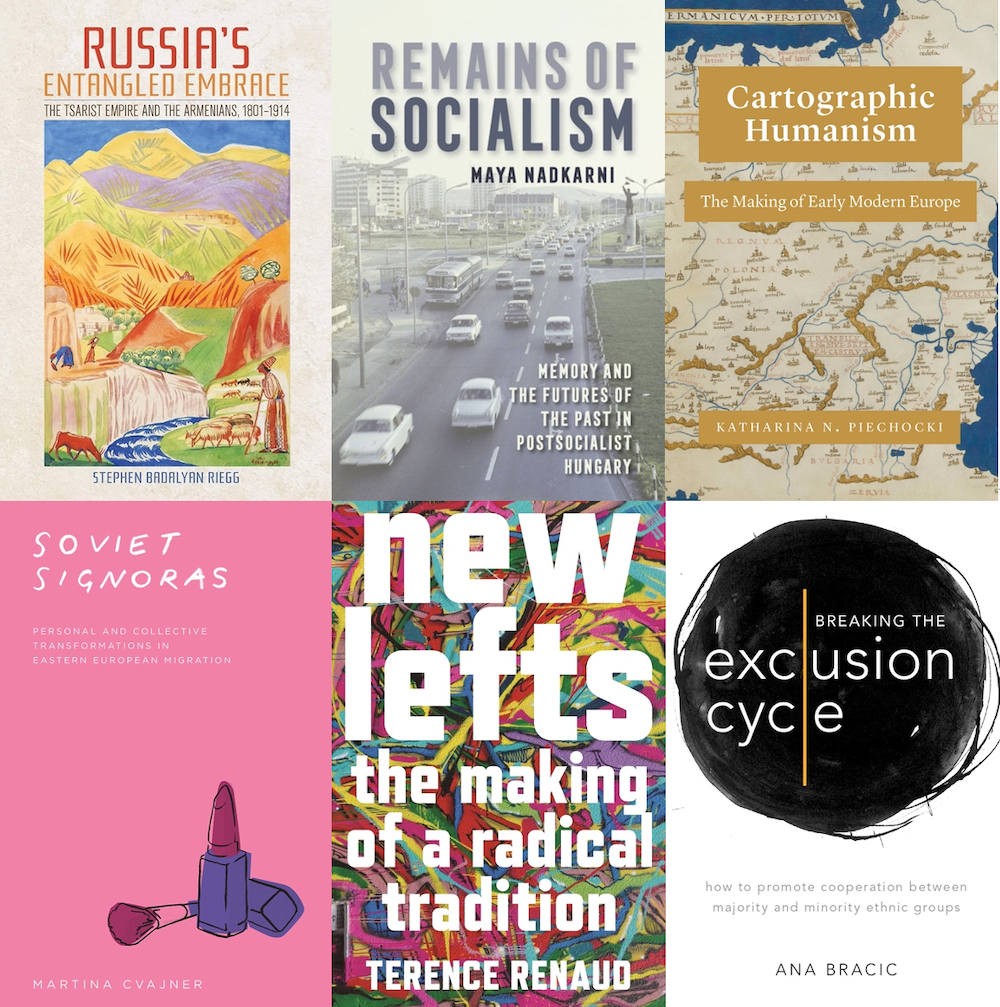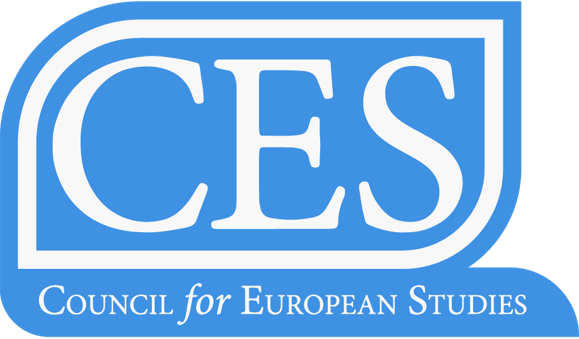
The Council for European Studies’ (CES) Book Award Committee is pleased to announce the winner of the 2022 European Studies Book Award.
Martina Cvajner has received the 2022 European Studies Book Award for her book Soviet Signoras: Personal and Collective Transformations in Eastern European Migration.
Martina Cvajner’s Soviet Signoras is a delicate ethnographic study that reveals almost two decades worth of migrant lives and stories of Central and Eastern European badanti (care-in workers for elder Italians), who, without any previous connection, reached Alpinetown, a small city in northern Italy. The women that Cvajner brilliantly describes are all middle-aged, mostly from Ukraine and Moldova, who, after the dissolution of the Soviet Union, headed to Southern Italy with enormous responsibilities as breadwinners, and little knowledge of where they were heading. They were pioneers. Alpinetown became their destination mostly by chance; however, as Cvajner clearly notes, not only did their migratory path shape and transform their lives but it combined an improvement of their families’ social status in their countries of origin with a perception—and a self-perception—of being at the bottom of the work market in their country of destination. As the women would say in Russian, their condition was initially one of rab, “slaves” (Cvajner 173). Reaching a compromise between these two perceptions was not an easy task, and Cvajner richly describes the women’s hyperfeminine style and consumption as ways for them to create a social space for themselves and draw “boundaries against both here and there” that would allow them to maintain their “self” (182). The humanity of the women and their everyday struggles vividly emerge from every page of Cvajner’s ethnographic study. Moreover, the initial strength and subsequent demise of the group’s ties are masterfully explored: the more the women acquired new forms of belonging in the local community, the less they relied on each other’s support. The stark difference between those who acquired the much-wanted status of signore because of their romantic relationships with Italians and those who did not is painstakingly portrayed and presented to the reader since the book’s prologue. In sum, Cvajner’s work is an extraordinarily lucid portrait of the pioneering role of the Soviet Signoras in migratory paths between Eastern and Western Europe, and it constitutes a milestone in ethnographic studies in this field.
Silvia Scarpa, Associate Professor, John Cabot University
On Behalf of the Judging Committee
European Studies Book Award Shortlist
Congratulations to the finalists of this year’s European Studies Book Award. The award honors the work of talented scholars who have written their first book on any subject in European Studies published within a two-year period. A multi-disciplinary Book Award Committee appointed by CES’ Executive Committee will choose the winner. Listed below are the shortlisted books.

- Russia’s Entangled Embrace: The Tsarist Empire and the Armenians, 1801-1914 by Stephen Badalyan Riegg (Cornell University Press)
- Remains of Socialism: Memory and the Futures of the Past in Postsocialist Hungary by Maya Nadkarni (Cornell University Press)
- Cartographic Humanism: The Making of Early Modern Europe by Katharina N. Piechocki (The University of Chicago Press)
- Soviet Signoras: Personal and Collective Transformations in Eastern European Migration by Martina Cvajner (The University of Chicago Press)
- New Lefts: The Making of a Radical Tradition by Terence Renaud (Princeton University Press)
- Breaking the Exclusion Cycle: How to Promote Cooperation between Majority and Minority Ethnic Groups by Ana Bracic (Oxford University Press)
This year’s jury is made up of: Nora Berend, Ari Joskowicz, Carolyn Guile, Silvia Scarpa, Jae-Jae Spoon, and Tommaso Pavone.
Past awardees of the prize include Emma Kuby for Political Survivors: The Resistance, the Cold War, and the Fight against Concentration Camps after 1945, Max Bergholz for Violence as a Generative Force: Identity, Nationalism, and Memory in a Balkan Community, Francine Hirsch for Empire of Nations: Ethnographic Knowledge and the Making of the Soviet Union, Chip Gagnon for The Myth of Ethnic War: Serbia and Croatia in the 1990s, Todd Shepard for his book, The Invention of Decolonization: The Algerian War and the Remaking of France (Cornell University Press), Mark I. Choate’s Emigrant Nation: The Making of Italy Abroad, Bonnie M. Meguid’s Party Competition between Unequals: Strategies and Electoral Fortunes in Western Europe, Paulina Bren for her book The Greengrocer and His TV: The Culture of Communism after the 1968 Prague Spring, and Harris Mylonas for The Politics of Nation-Building: Making Co-Nationals, Refugees, and Minorities.


